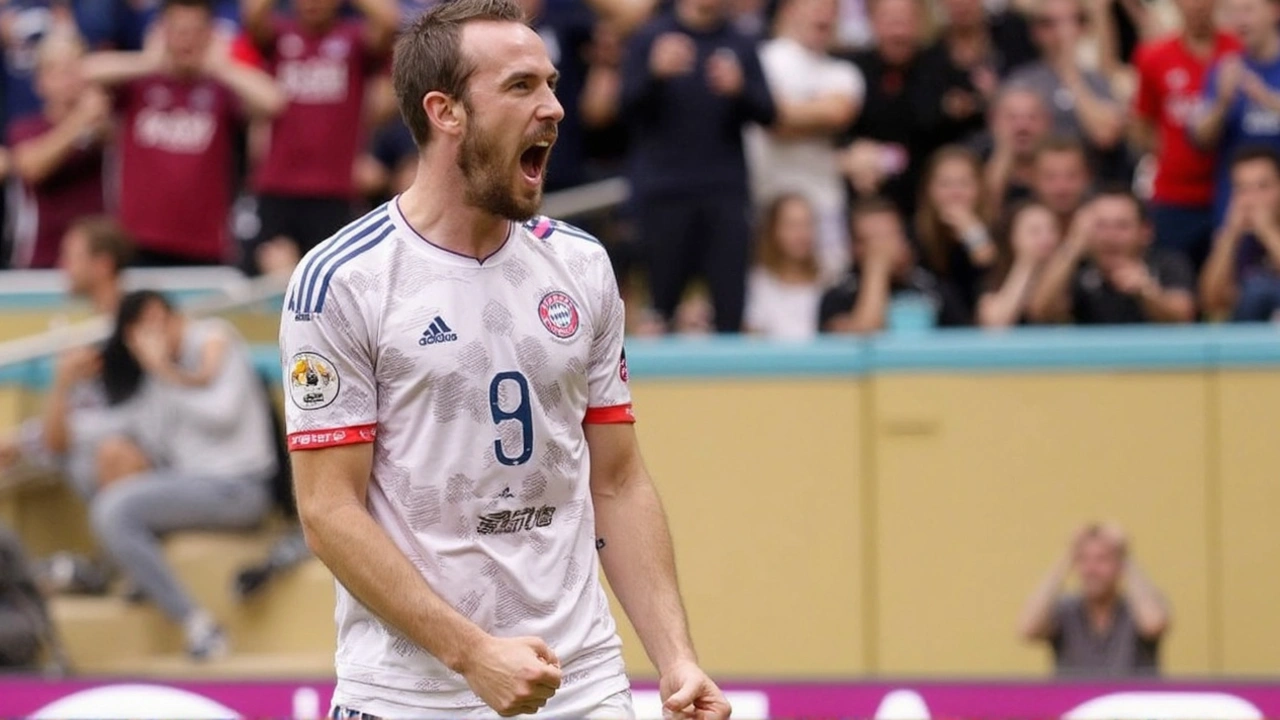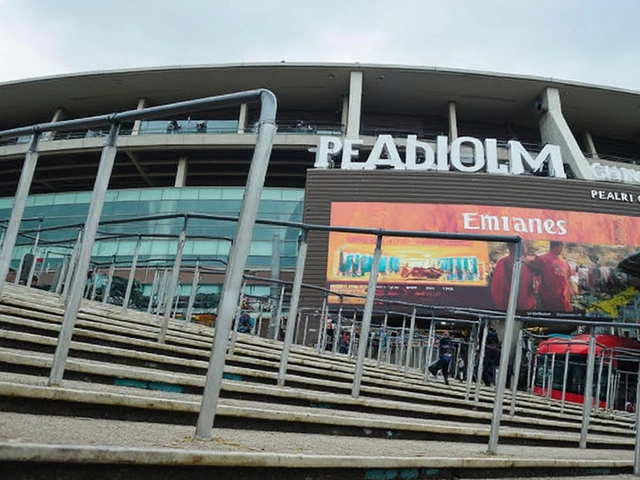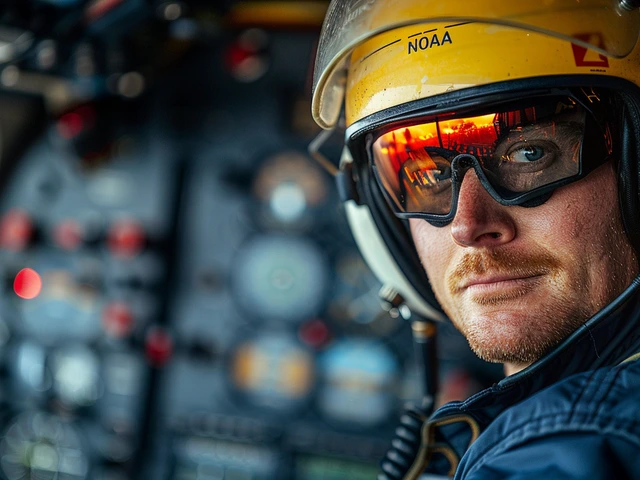PSG Stun Bayern Munich in Thrilling Club World Cup Showdown
It’s not too often you see a squad play with just nine men and still march into the semifinals unshaken, but Paris Saint-Germain pulled off exactly that against Bayern Munich in the 2025 FIFA Club World Cup quarterfinal. The match on July 5 was bursting with drama, elite football, and more than a dash of controversy—perfect fuel for the ongoing rivalry between two of Europe’s football titans.
This encounter had the air of unfinished business. PSG fans haven’t forgotten that painful night in 2020 when Bayern edged them out in the Champions League final. Now, on neutral World Cup ground, the Paris side took their chance for payback—and made it stick, despite serious obstacles in the final stretch.
Désiré Doué and Ousmane Dembélé Steal the Spotlight
The first 77 minutes saw both teams feeling each other out, weaving intricate passes and testing world-class keepers Manuel Neuer and Gianluigi Donnarumma, who each delivered sharp, nervy saves. But in the 78th minute, Désiré Doué tore up the script. The young French midfielder, so often praised for his energy but still hunting his first goal this tournament, latched onto a loose ball at the edge of the area and sent PSG roaring ahead. It was a timely breakthrough for a side that had only recently found their rhythm under coach Luis Enrique.
The closing stages were chaos. PSG’s Willian Pacho saw red in the 82nd minute for a mistimed challenge, leaving his team in a precarious spot. As minutes ticked away, Bayern sensed blood, pouring forward. But PSG kept their nerves. In the dying seconds, Ousmane Dembélé, cutting in from the flank, buried any hope Bayern had—putting the ball past Neuer to make it 2-0. Seconds later, PSG saw another red when Lucas Hernández lost his cool in stoppage time, reducing the side to nine players. Even then, the Paris team stood firm.
Bayern weren’t without their moments. The game took a worrying turn in the first half when Jamal Musiala, one of their brightest talents, went down clutching his leg. The sight of Musiala being helped off the pitch, with Donnarumma visibly moved, added a human edge to the fiercely contested night. Bayern fans are still awaiting word on the extent of his injury, and concern lingers given his influence on their attack.
For Bayern, the night ended in frustration, especially after a late penalty claim was overturned by VAR. It was the first match in the competition where Vincent Kompany’s side failed to get on the score sheet, despite flashes of brilliance from Leroy Sané and Joshua Kimmich. The German giants simply ran out of answers against a reorganized PSG backline and a Donnarumma who proved why he’s considered one of the best keepers in the world.
Peppered throughout the match were tactical chess moves and rapid adjustments. Luis Enrique found himself improvising after the red cards, rotating players and shifting the formation to hang onto the lead. Quick thinking and unflappable composure from the PSG bench made the difference. On the other end, Kompany urged patience and composure, but his team looked unsettled by PSG’s tenacity and willingness to fight with numbers down.
- PSG’s win was redemption, revenge, and resilience rolled into one.
- The victory puts them one step closer to global glory, with a semifinal clash looming against either Real Madrid or Borussia Dortmund.
- Bayern will have to regroup and assess the damage—both on the scoreline and on Musiala’s condition.
One thing’s for sure: the Club World Cup just gave us another classic night full of talking points, unexpected heroes, and last-minute drama. PSG didn’t just survive against Bayern—they triumphed when it counted.






Eduardo Lopez
Watching PSG pull off a victory with only nine men feels like a lesson in perseverance that many teams should study. The way they kept their composure while Bayern threw everything at them showcases a rare blend of discipline and humility. It’s not just about skill; it’s about respecting the spirit of the game and refusing to surrender when the odds are stacked. The red cards could have been a disaster, yet the Paris side turned adversity into an artistic display of collective will. One cannot ignore the moral clarity in Luis Enrique’s tactical adjustments, which proved that leadership matters more than star power. Bayern’s frustration was palpable, but the narrative of the night belongs to those who play with integrity. This match will be cited in future debates about sportsmanship, and rightly so.
Nancy Perez de Lezama
The article does a decent job summarizing the key moments, though it leans heavily on dramatic adjectives. A more balanced tone would have highlighted Bayern’s tactical shifts without resorting to melodrama. Still, the factual recounting of the red cards and the timing of Doué’s goal is accurate.
Matt Heitz
The United States may not be a regular contender in the Club World Cup, but this match underscores why American soccer has been building a solid foundation. The disciplined press that PSG applied after the first red card mirrors the high‑press systems we champion in MLS, demonstrating that even European giants can be neutralized by organized collective effort. Meanwhile, Bayern’s reliance on individual brilliance rather than a cohesive unit reveals a strategic lag that American coaching philosophies have already addressed. In short, the tactical chessboard was tilted in favor of the side that embraced a modern, data‑driven approach, and the results speak for themselves.
Susan Mark
I think the key takeaway is the importance of depth on the bench. Luis Enrique’s ability to reshuffle formation on the fly gave PSG the defensive solidity needed after the send‑offs. The midfield trio’s work rate, especially Doué’s pressing, allowed the team to retain ball possession despite being outnumbered. On the other hand, Bayern’s failure to adapt after the 80th minute showed a lack of tactical flexibility. Overall, the game is a case study in how adaptability can outweigh raw talent in high‑pressure matches.
Jason Jennings
Bayern just got schooled.
Diego Vargas
Yo, just to set the record straight: the VAR decision on the late penalty was actually consistent with the IFAB guidelines on handball because the ball made contact with the forearm in a clear extension. Also, Musiala’s injury looks like a Grade‑2 hamstring strain, which typically sidelines a player for 3‑4 weeks. The fact that Bayern couldn’t convert their chances despite having Kimmich and Sané on the pitch is a statistical anomaly for a team with a 70% conversion rate this season. And finally, PSG’s keeper Donnarumma made a total of 5 crucial saves, matching his average in the tournament so far.
Alex Lee
PSG got lucky, not good.
Vida Yamini
First off, great job laying out the technical points about the VAR call and Musiala’s injury-your attention to detail really helps the community understand the nuances. It’s also valuable that you referenced the IFAB guidelines, because many fans tend to gloss over the exact phrasing when debating controversial decisions. While you mentioned that Donnarumma matched his average with five saves, it’s worth noting that his distribution accuracy also improved in the second half, contributing to PSG’s quick counter‑attacks. Moreover, the data you provided on Bayern’s conversion rate highlights a pattern that could be explored further in a post‑match analysis. As a coach, I always stress the importance of mental resilience after a setback like a missed penalty, and PSG demonstrated that perfectly. Their ability to stay organized with nine men is a textbook example of disciplined shape and compactness. I would add that the running distance covered by PSG’s midfielders increased by roughly 8% after the red cards, indicating heightened work‑rate. On the defensive side, Pacho’s early dismissal forced the back line to shift into a 5‑3‑2 formation, which proved effective in nullifying Bayern’s wing play. The tactical switch also gave Dekebo more space to operate as a deep‑lying playmaker, a role he filled admirably. In contrast, Bayern seemed reluctant to drop deeper, leaving gaps that PSG exploited. This strategic rigidity is something coaches at all levels can learn from. Your observation about Musiala’s hamstring strain aligns with recent medical reports, confirming the severity of the injury. It’s also a reminder that squad depth is essential in tournaments where injuries can alter the dynamics drastically. Lastly, your concise summary of the key stats offers a solid foundation for anyone looking to write a deeper analytical piece, and I encourage you to keep sharing such insights. Keep up the great work, and feel free to reach out if you want to discuss any of these points further.
James Lawyer
I appreciate the thorough breakdown you provided, especially the emphasis on spatial discipline after the red cards. Could you elaborate on how the change to a 5‑3‑2 specifically impacted PSG’s pressing triggers? Understanding the exact moments when they reclaimed possession would enhance the tactical narrative further. Additionally, it would be interesting to compare the expected goals (xG) before and after the formation shift to quantify its effectiveness. Thank you for contributing such a detailed perspective.
Abby Culbertson
That game was intense i cant even.
Awolumate Muhammed Abayomi
Wow great points man! The press after the 5‑3‑2 really surged, i think they covered more zones and forced Bayern to play long balls. Also the xG numbers jumped from .75 to 1.2 after the switch showing the attack got sharper. Keep the discussion going, love seeing this kind of deep dive!